March 27, 2020 by John Fernandez
Healthcare 2019: Top Advances in Treatments, Prevention

Throughout 2018, the Resource blog has highlighted advances in treatment and prevention at Baptist Health South Florida, sometimes taking the lead or reflecting on national trends in the fight against several types of cancers, heart valve disease, stroke-related complications and other serious or chronic health conditions. These advances are poised to help patients in 2019 and beyond. They include continued advances with gene therapies that attack cancerous tumors and leading-edge procedures that affect cardiovascular health, neuroscience, orthopedics and the immune system.
Below are excerpts from some of the Resource and Salud blogs over the past 12 months — as we look ahead to another landmark year.
Advances in Cancer Treatment
Targeting Tumors: NanoKnife Advances Minimally Invasive Cancer Treatment (Video)
 While surgery, radiation and chemotherapy may be the first cancer treatments that come to mind, interventional oncology has become an essential component of the multidisciplinary team approach to cancer care. Procedures in interventional oncology, a subspecialty of interventional radiology, use minimally invasive techniques, in combination with image guidance, to precisely target cancerous tumors. Read more.
While surgery, radiation and chemotherapy may be the first cancer treatments that come to mind, interventional oncology has become an essential component of the multidisciplinary team approach to cancer care. Procedures in interventional oncology, a subspecialty of interventional radiology, use minimally invasive techniques, in combination with image guidance, to precisely target cancerous tumors. Read more.
How Can Proton Therapy Improve Breast Cancer Treatment? (Video)
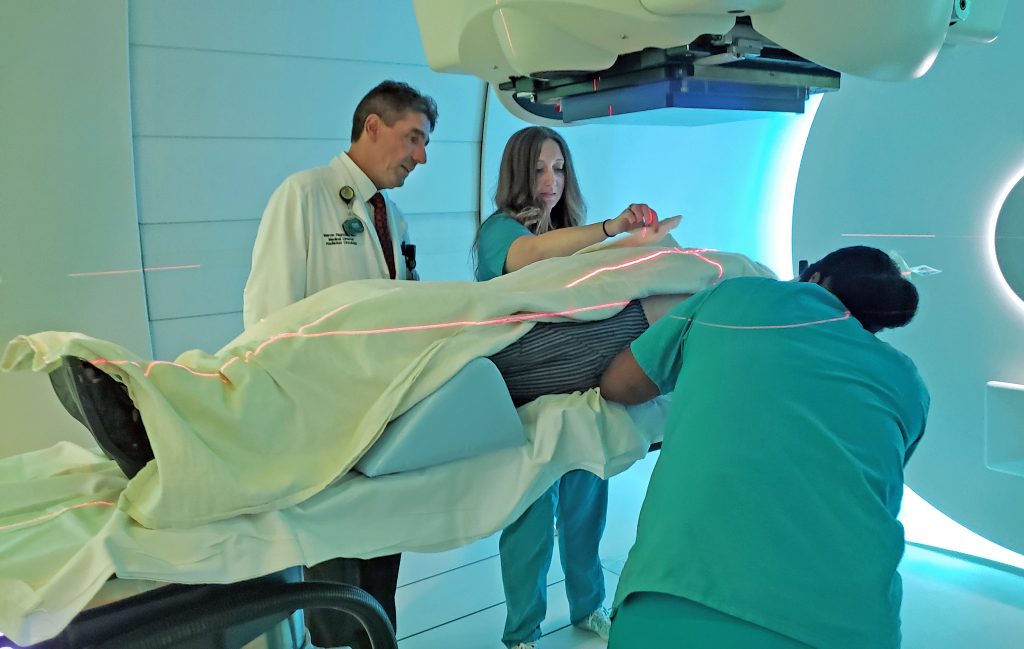 Radiation therapy is an effective treatment for breast cancer, but like other therapies it often comes with side effects. Some of the most serious, including damage to the heart, may not appear until years later. Now, proton therapy is receiving growing interest for the treatment of breast cancer, especially left-sided breast cancer which is closer to the heart. Read more.
Radiation therapy is an effective treatment for breast cancer, but like other therapies it often comes with side effects. Some of the most serious, including damage to the heart, may not appear until years later. Now, proton therapy is receiving growing interest for the treatment of breast cancer, especially left-sided breast cancer which is closer to the heart. Read more.
A ‘Game Changer’ for Treating Tumors at Miami Cancer Institute
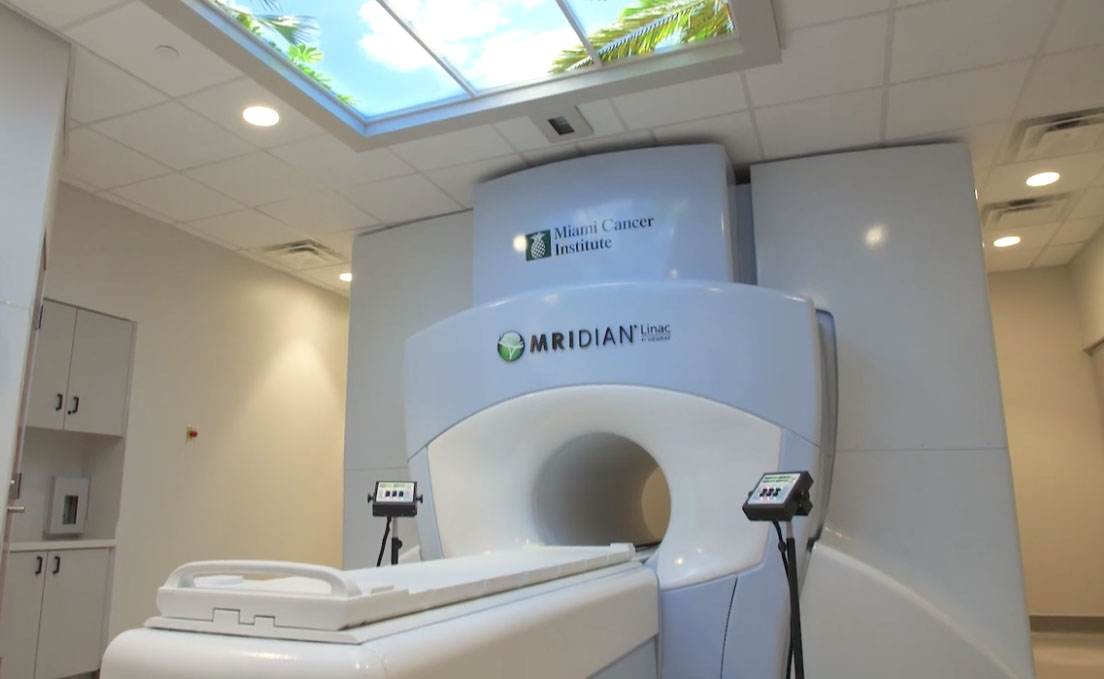 When 87-year-old Manny Avila was diagnosed with pancreatic cancer, the prognosis was devastating. “They gave him 2 months to live,” says Manny Avila, Jr., his son. A year and a half later, Manny and his family are at Miami Cancer Institute to celebrate the time they have had together, thanks to a new treatment paradigm in the fight against cancer. Read more.
When 87-year-old Manny Avila was diagnosed with pancreatic cancer, the prognosis was devastating. “They gave him 2 months to live,” says Manny Avila, Jr., his son. A year and a half later, Manny and his family are at Miami Cancer Institute to celebrate the time they have had together, thanks to a new treatment paradigm in the fight against cancer. Read more.
Thousands of Breast Cancer Patients can Skip Chemotherapy
 As many as 60,000 women a year in the U.S. with certain types of early-stage breast cancer could benefit from treatments that are less invasive than chemotherapy to combat their disease, according to new research. Chemotherapy is an established primary treatment associated with improving survival among women with several types of breast cancer tumors. Read more.
As many as 60,000 women a year in the U.S. with certain types of early-stage breast cancer could benefit from treatments that are less invasive than chemotherapy to combat their disease, according to new research. Chemotherapy is an established primary treatment associated with improving survival among women with several types of breast cancer tumors. Read more.
Heart Valve Repair, Replacement
Medical Clip Benefits Patients with Severe Heart Failure and Mitral Insufficiency
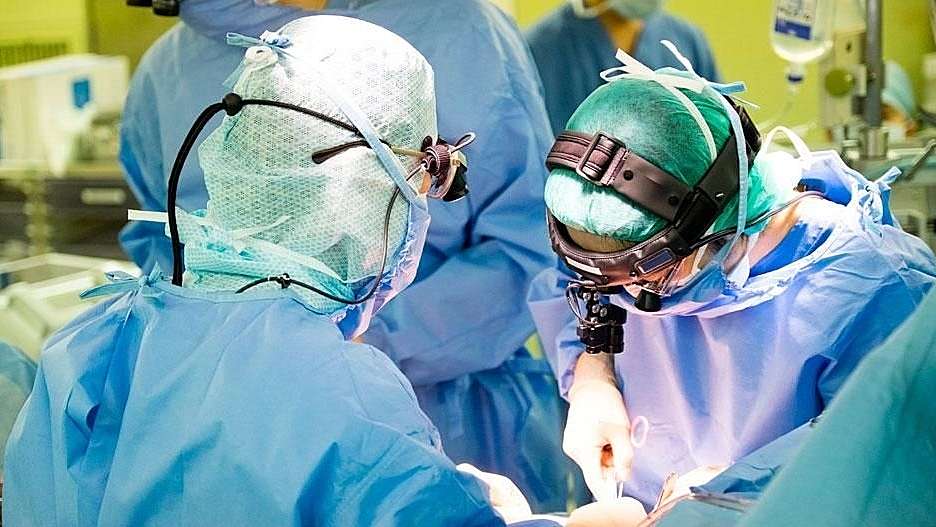 A device called the MitraClip may introduce a new, life-saving procedure for patients suffering from severe and difficult-to-treat heart failure, according to a promising new study. The device reduced hospitalizations related to heart failure by nearly half — and deaths by nearly 40 percent among patients with secondary mitral regurgitation (MR) — compared to those who received standard medical treatment. Read more.
A device called the MitraClip may introduce a new, life-saving procedure for patients suffering from severe and difficult-to-treat heart failure, according to a promising new study. The device reduced hospitalizations related to heart failure by nearly half — and deaths by nearly 40 percent among patients with secondary mitral regurgitation (MR) — compared to those who received standard medical treatment. Read more.
Neuroscience
New 24-Hour Stroke Protocol Treats More At-Risk Patients (Video)
 A new protocol for treating patients with the most common type of stroke – the type triggered by a blood clot that reduces or stops blood flow to a part of the brain — is helping more people at risk for permanent disability or death. The shift in treatment was prompted by new guidelines issued in January by the American Heart Association/American Stroke Association. Read more.
A new protocol for treating patients with the most common type of stroke – the type triggered by a blood clot that reduces or stops blood flow to a part of the brain — is helping more people at risk for permanent disability or death. The shift in treatment was prompted by new guidelines issued in January by the American Heart Association/American Stroke Association. Read more.
Stroke vs. Aneurysm: Different Symptoms, Treatments (Video)
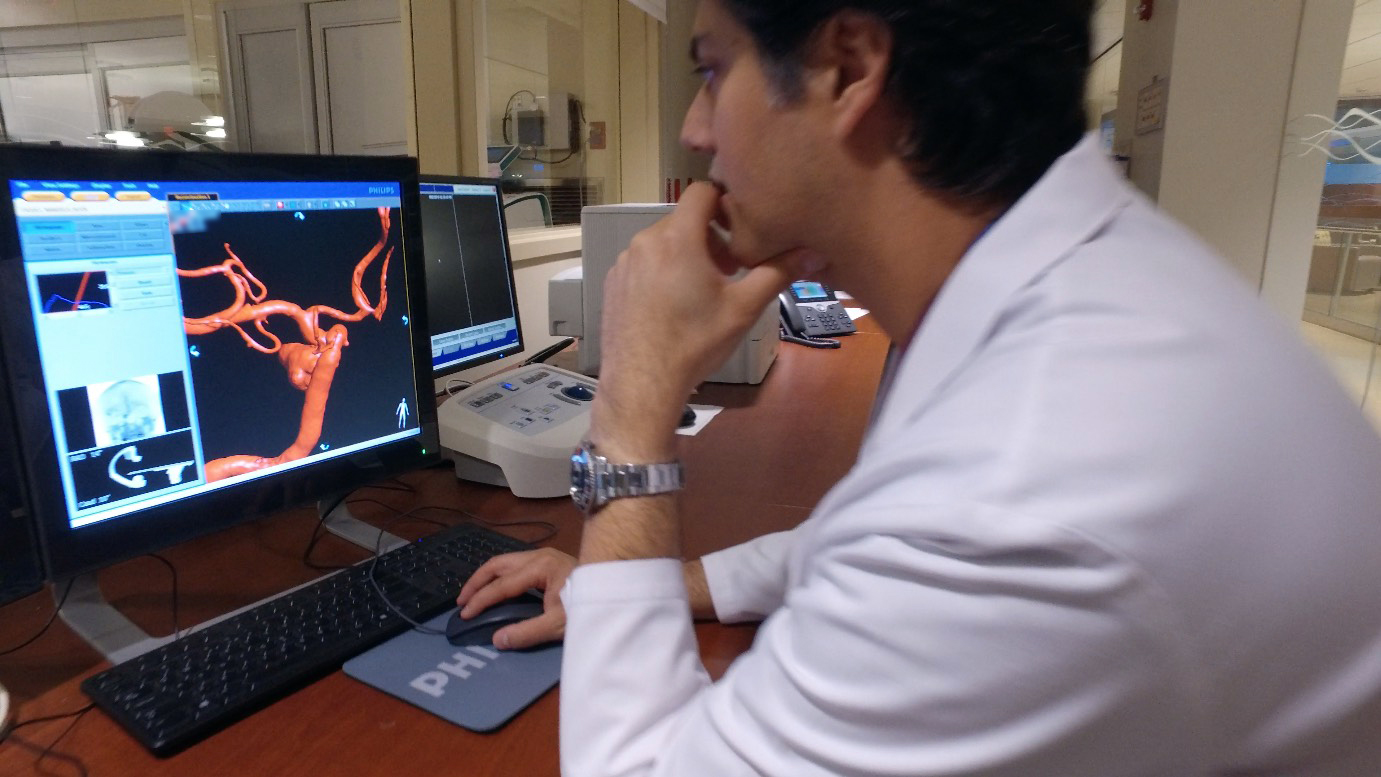 If an aneurysm is detected, but has not ruptured, there are more options: either treatment or observation. Treatment often means a minimally invasive procedure with a very high success rate of more than 90 percent. Read more.
If an aneurysm is detected, but has not ruptured, there are more options: either treatment or observation. Treatment often means a minimally invasive procedure with a very high success rate of more than 90 percent. Read more.
Migraines vs. Tension Headaches: Knowing the Difference
 What type of headache requires medical attention? See a doctor if headaches are new and persistent, worsen over time or are accompanied by fever and other body pains. Also seek medical treatment if tension headaches disrupt your life. Read more.
What type of headache requires medical attention? See a doctor if headaches are new and persistent, worsen over time or are accompanied by fever and other body pains. Also seek medical treatment if tension headaches disrupt your life. Read more.
Orthopedic Care
Student Athlete’s Comeback from ACL Reconstruction (Video)
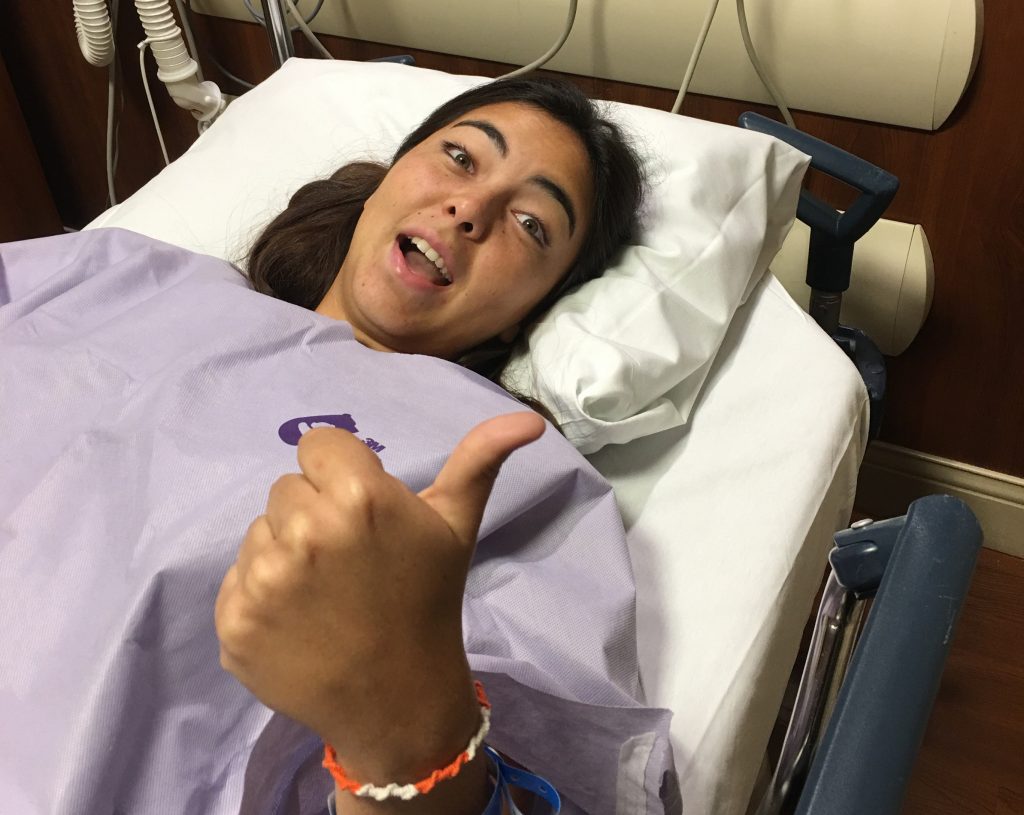 Student athlete Amelia Varela, 17, recalls the moment earlier this year when she injured her knee and tore her anterior cruciate ligament (ACL). “I was playing softball and collided with one of my teammates,” she said. “I felt the pop right away.” Amelia’s family knew where to take her to receive expert sports medicine treatment. Read more.
Student athlete Amelia Varela, 17, recalls the moment earlier this year when she injured her knee and tore her anterior cruciate ligament (ACL). “I was playing softball and collided with one of my teammates,” she said. “I felt the pop right away.” Amelia’s family knew where to take her to receive expert sports medicine treatment. Read more.
Miami Dolphins Team Physicians Keep Players Healthy at Training Camp (Video)
 For nearly 20 years, the Miami Dolphins have turned to orthopedic surgeon and team Medical Director, John Uribe, M.D., to keep them healthy and ready for game day. Dr. Uribe, Chief Medical Executive of Miami Orthopedics & Sports Medicine Institute, along with sports medicine physician and Miami Dolphins Chief Medical Physician, Michael Swartzon, M.D., and orthopedic surgeon and Assistant Team Physician, Gautam Yagnik, M.D., work with the team throughout training camp and the regular season. Read more.
For nearly 20 years, the Miami Dolphins have turned to orthopedic surgeon and team Medical Director, John Uribe, M.D., to keep them healthy and ready for game day. Dr. Uribe, Chief Medical Executive of Miami Orthopedics & Sports Medicine Institute, along with sports medicine physician and Miami Dolphins Chief Medical Physician, Michael Swartzon, M.D., and orthopedic surgeon and Assistant Team Physician, Gautam Yagnik, M.D., work with the team throughout training camp and the regular season. Read more.
Joint Replacement Surgery: Knees and Hips
 When a knee or hip joint wears away, due to injury or disease, joint replacement surgery may be an option you need to consider to reduce pain and restore your previous level of activity and quality of life. Read more.
When a knee or hip joint wears away, due to injury or disease, joint replacement surgery may be an option you need to consider to reduce pain and restore your previous level of activity and quality of life. Read more.
Wellness and Prevention
‘Move More, Sit Less’: U.S. Updates Exercise Guidelines for Adults, Kids
 For the first time in 10 years, the U.S. government has updated its minimum exercise guidelines to help adults and children achieve the many health benefits of regular physical activity. Read more.
For the first time in 10 years, the U.S. government has updated its minimum exercise guidelines to help adults and children achieve the many health benefits of regular physical activity. Read more.
Updated Cholesterol Guidelines Stress Personalized Care, Healthier Lifestyle
 More “personalized” risk assessments and a stronger emphasis on a healthy lifestyle are part of the updated key recommendations in the 2018 cholesterol guidelines from the American Heart Association (AHA) and the American College of Cardiology (ACC). Read more.
More “personalized” risk assessments and a stronger emphasis on a healthy lifestyle are part of the updated key recommendations in the 2018 cholesterol guidelines from the American Heart Association (AHA) and the American College of Cardiology (ACC). Read more.
U.S. Guidelines Urge More ‘Behavior’ Counseling for Obese Adults
 If your body mass index (BMI) is over 30, which qualifies as obese, you should also get a referral to an intensive weight-loss and exercise program that includes counseling to achieve “behavior change,” according to the latest recommendations by a U.S. panel of public health experts. Read more.
If your body mass index (BMI) is over 30, which qualifies as obese, you should also get a referral to an intensive weight-loss and exercise program that includes counseling to achieve “behavior change,” according to the latest recommendations by a U.S. panel of public health experts. Read more.
top stories












There are no comments